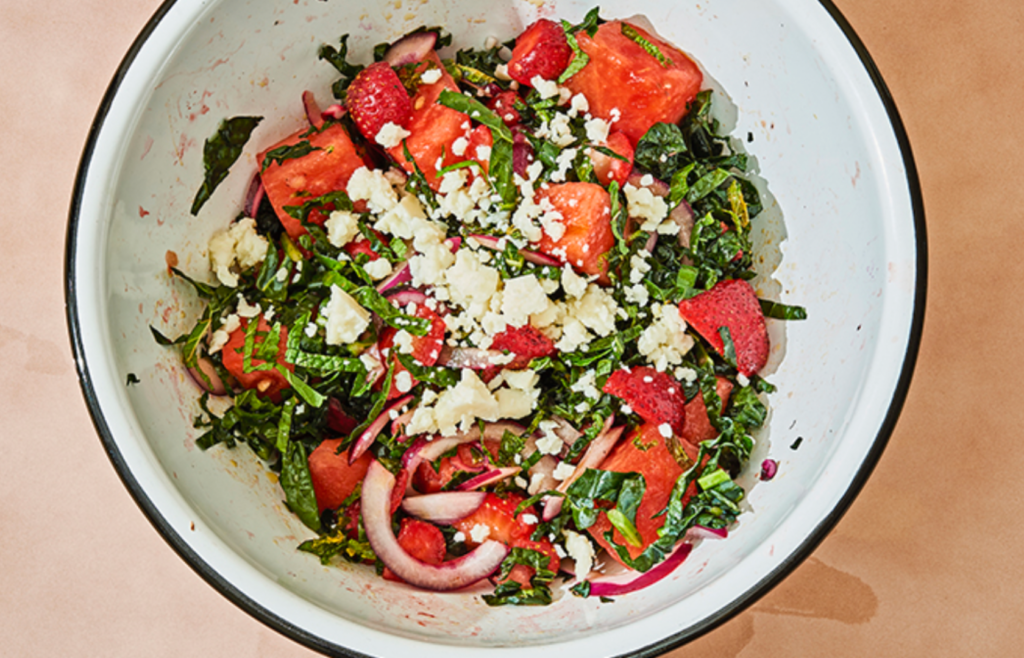Did you know that 38% of our food in the U.S. goes unsold or uneaten? (Source)
Wasted food means wasted resources like water, cropland, landfill space, and money. In 2021, wasted food cost the U.S. economy $310 billion. (Source)
Food waste is happening everywhere, from the farm to the store to your kitchen. However, it’s estimated that 48% of all food waste is being generated in the home. (Source)
On a local level, Metro Nashville recently committed to reducing Nashville’s food waste by 50% by 2030; read more about that commitment in this article. The only way to reach that goal is one step at a time. It will take coordinated city-wide efforts, but individual commitments can make a big difference, too.
Not sure how to start making an impact on food waste? Follow these five tips for reducing your food waste at home.
1. Meal Plan
Never go to the grocery store without a plan! Easier said than done, we know. However, planning your meals for a few days or a week at a time keeps you from impulse buying, and it ensures you have a plan for each item you are buying.
Planning can also help ensure you use all the fresh foods you buy. For example, if you want to make a soup for dinner that uses three stalks of celery, you can also plan to make a salad for lunch that will use up the rest of the celery bunch to ensure the other stalks aren’t wasted.
2. Keep the Clutter Away
We’ve all been there. You are looking through the fridge for a tasty snack, and far in the back, you spot some berries that have been there a little too long and look pretty fuzzy.
Avoid forgetting about those tasty foods by keeping your fridge free of clutter and keeping the food you need to eat in the next few days at the front of your fridge or the top of the drawer. Or try placing your perishables in the door of the fridge so they are always in view! This will help ensure you don’t forget about those delicious strawberries.
Check out a great illustration of what resources are wasted when strawberries are forgotten in the back in this video from the Natural Resources Defense Council.
3. Maximize Produce Life
Avoid throwing your money in the trash by storing fresh food properly! Here are a few of our favorite storage tricks that can help you reduce food waste and save money.
- Submerge your carrots. When you get home from the store, wash, peel (if purchasing whole carrots), submerge them in water, and store them in the fridge. This will help them stay nice and crunchy.
- Don’t put those tomatoes in the fridge. They stay fresher longer when stored on the counter out of the sun.
- Avoid storing onions and potatoes in the same place. Potatoes and onions taste great together, but they should be stored separately as proximity will cause them to spoil faster.
- Wrap leafy greens in a paper towel. The paper towel gives the excess moisture somewhere to go resulting in a longer shelf life.
For more produce storage tips, check out this interactive tool. Correctly storing produce can be time-consuming, but it will save you money!
4. Interpret Date Labels
Did you know that aside from baby formula, date labels are federally unregulated? Many date labels simply signify when the food will reach its peak freshness, not when it is no longer safe to eat. (Source)
Instead of only relying on date labels to tell if your food is still fresh, rely on your five senses, particularly smell. Look for mold and smell for spoilage before you toss food that may not be expired.
5. Donate
You get home from Costco, so excited to try those new granola bars you purchased. But your dreams slowly fade when you realize the bars have dried cranberries, and you can’t stand cranberries.
Before tossing good food in the trash, ask a friend if they want it or donate it to a local food bank, like Second Harvest or the Nashville Food Project.
More information on food waste, solutions you can implement, and local resources for reducing waste or properly disposing of food waste can be found in the links below.
Additional Resources
Discover More About Food Waste
- Save the Food - Planning, Storage, Recipes Tools
- Reducing Food Waste: Eight Tips for Home Cooks
- Sustainable Management of Food
Food Waste Reduction and Disposal Resources in Nashville
